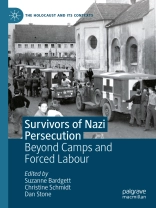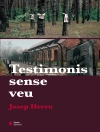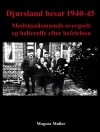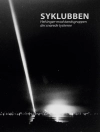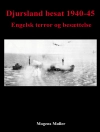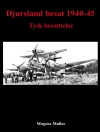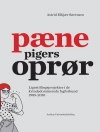This volume contains thirteen selected papers from the seventh international ‘Beyond Camps and Forced Labour conference’, held in London in January 2023. The geographical and methodological scope of the chapters, ranging from postwar trials to survivors’ memoirs and former classmates’ letters, from Greece to the Soviet Union, France to Croatia, indicates both the range encompassed by Holocaust Studies’ focus on the immediate postwar period and the expansion and flourishing of the discipline. The book examines the experiences of forced labourers, postwar struggles to obtain restitution for stolen property, the political and cultural activities of displaced persons, trials of perpetrators, and the emergence of survivors’ collective memory. With chapters on non-Jewish forced labourers, Roma and the care of Black youngsters by a noted Jewish refugee, the book speaks to the international dimensions of the Holocaust and its effects, and shows how postwar responses to the Nazi crimes shaped the world after 1945. The vast range of groups affected by the Nazis’ crimes found its echo in the postwar responses of many different constituencies, and this volume highlights, on the basis of cutting-edge historical research, why the turn to the aftermath of World War II and the Holocaust is so important a part of Holocaust Studies.
สารบัญ
Suzanne Bardgett, Christine Schmidt and Dan Stone; Introduction.- Riki Van Boeschoten and Antonis Antoniou; Greek Forced Labourers in the Third Reich: An Untold Story.- René Bienert; Killing Fields Uncovered in Bavaria: An Early Survivors’ Initiative in Documenting Nazi Crimes and Tracing Victims.- Naida-Michal Brandl; Navigating Repatriation and Restitution: Jewish Survivors in Croatia in the Immediate Postwar Period.- Katja Seybold; Landsmanshaftn in the Jewish Displaced Persons Camp Bergen-Belsen: Two Samples.- Éva Kovács and Rita Horváth; Memory as a Social Reality behind the Iron Curtain: The History of the Memoir Hairpin Bend Written by Maria Ember.- Amine Laggoune; Soviet Repatriation Camps in France: The Culture and Everyday Life of Former Prisoners of War and Forced Labourers during the Exit from the Second World War (1944-1947).- Karl Krotke-Crandall; Memory Un-interrupted: A Case Study on Collective Memory Transmission within Jewish Survivors and Their Kin Living in the Former Soviet Core.- Emilia Koustova and Alain Blum; Lithuanian Jews in the Sights of the Stalinist Police after the Second World War.- Verena Meier; Denazification: The Criminal Police and its Role in the Prosecution of Nazi Perpetrators of the Genocide Against Sinti and Roma in the Soviet Occupation Zone.- Jens-Christian Hansen; Bringing Justice to the Subcamps: Former Prisoners as Key Witnesses in Post-War Trials.- Silke von der Emde; Dis/abling Affect: Building Community out of Trauma at the International Tracing Service.- Abby Gondek; Ernst Papanek and the Wiltwyck School: A Jewish Austrian Holocaust Refugee and Care for Black Youth.- Jacqueline Vansant; Bringing the Past to Life: Epistolary Conversations of Jewish-Austrian Classmates.
เกี่ยวกับผู้แต่ง
Suzanne Bardgett was Head of Research and Academic Partnerships at Imperial War Museums until 2023. She currently writes for IWM’s Publishing section.
Christine Schmidt is Deputy Director and Head of Research at the Wiener Holocaust Library, UK.
Dan Stone is Professor of Modern History at Royal Holloway, University of London, UK.
